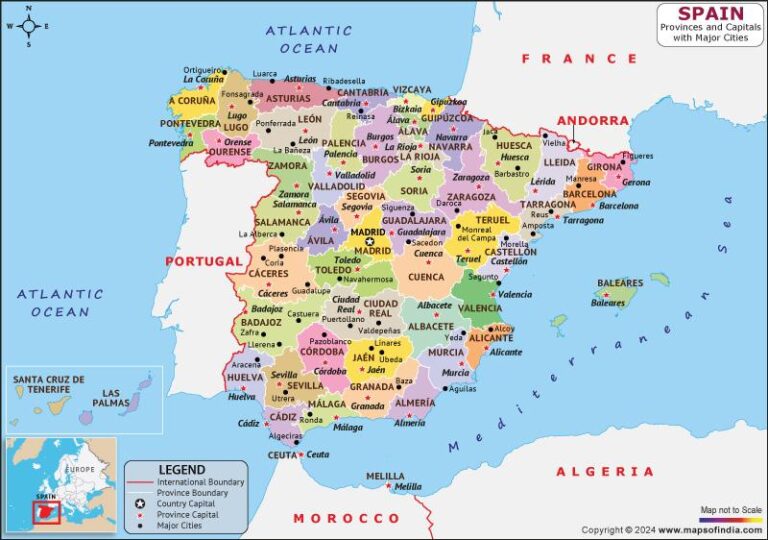Spain has pledged a substantial investment of 400 million euros to support the revival of the Thirty Meter Telescope (TMT) project, countering recent calls by former U.S. President Donald Trump to cancel the initiative. The ambitious international astronomical venture, designed to be one of the world’s most powerful observatories, has faced ongoing challenges ranging from regulatory hurdles to political opposition. Spain’s financial commitment signals renewed momentum for the project amid a complex landscape of scientific ambition and geopolitical debate.
Spain Commits 400 Million Euros to Rescue Thirty Meter Telescope Amid Political Uncertainty
In a decisive move to secure the future of the Thirty Meter Telescope (TMT), Spain has pledged 400 million euros to ensure the continuation of this landmark astronomical project amid increasing political tensions. The injection of funds aims to stabilize ongoing construction efforts and alleviate uncertainties caused by recent statements from former U.S. President Donald Trump, who publicly hinted at potential cancellation. The Spanish government’s commitment underscores a growing international dedication to maintaining momentum on what is poised to become one of the most powerful observatories in the world.
Key aspects of the Spanish involvement include:
- Financial Support: The significant funding will cover costs related to delays and technological upgrades.
- Strategic Collaboration: Spain will increase its collaboration footprint, providing expertise and resources.
- Political Stability: This move aims to counterbalance political unpredictability impacting the TMT consortium.
| Funding Source | Amount (Million Euros) | Impact |
|---|---|---|
| Spanish Government | 400 | Secures construction continuity |
| U.S. Contributions | 350 | Support technology development |
| Canada & Japan | 250 | Collaborative management |
Analyzing the Scientific and Economic Implications of Spain’s Investment in the TMT Project
Spain’s commitment to inject 400 million euros into the Thirty Meter Telescope (TMT) project stands as a bold statement of confidence in cutting-edge scientific advancement, despite geopolitical tensions surrounding the initiative. The infusion of capital is expected to not only accelerate the construction of one of the world’s most powerful astronomical observatories but also to position Spain as a pivotal player in global space research. The scientific community anticipates breakthroughs in areas such as exoplanet detection, dark matter exploration, and deep universe imaging, all enabled by the unprecedented resolving power of the TMT. This advancement sends a clear message that Spain prioritizes long-term knowledge creation over short-term political disruptions.
Economically, the investment promises substantial returns that extend well beyond pure research. The project is anticipated to generate significant employment opportunities in high-tech sectors, stimulate innovation, and enhance Spain’s reputation as a scientific hub. For instance, local industries involved in optics, engineering, and data analytics are expected to benefit from increased contracts and collaborative efforts. Below is a brief overview of the potential economic impact:
| Economic Aspect | Expected Outcome |
|---|---|
| Job Creation | Over 2,500 direct and indirect jobs |
| Tech Industry Growth | 15% increase in aerospace and optics sector revenue |
| Research Collaborations | Enhanced partnerships with 30+ international institutions |
| Innovation Boost | Development of new imaging and data processing technologies |
Key benefits include:
- Strengthened position in international scientific forums
- Long-term economic multiplier effect in tech-driven markets
- Improved educational opportunities through expanded research programs
Experts Advise Strengthening International Collaboration to Secure the Future of Groundbreaking Astronomy
The recent pledge of 400 million euros by Spain to support the Thirty Meter Telescope (TMT) project has reignited discussions around the necessity of fortifying international partnerships in astronomical research. Experts emphasize that such groundbreaking endeavors require not only substantial funding but also a collaborative framework that transcends political and geographic barriers. With the project facing threats of cancellation from key figures such as former U.S. President Donald Trump, astronomers and policymakers alike are calling for a united global front to safeguard the future of observational astronomy.
Leading voices in the scientific community highlight several core reasons why international collaboration is indispensable:
- Pooling Resources: Combining financial, technological, and intellectual assets enhances the feasibility of complex astronomical instruments.
- Knowledge Exchange: Collaborative projects foster innovation through shared expertise and diverse perspectives.
- Political Stability: Multi-nation involvement reduces the risk of project disruption due to unilateral policy changes.
- Global Access: Ensures equitable scientific benefits and encourages cultural inclusivity in space exploration.
| Aspect | Benefit | Impact on TMT |
|---|---|---|
| Funding | Shared financial burden | Secures long-term development |
| Technology | Innovation through collaboration | Improves telescope capabilities |
| Policies | Mitigates political risks | Preserves project continuity |
To Conclude
As the debate over the future of the Thirty Meter Telescope intensifies, Spain’s commitment of 400 million euros underscores the international stakes involved in advancing astronomical research. While political voices like former President Trump call for cancellation, supporters emphasize the project’s potential to unlock unparalleled insights into the universe. The coming months will be critical in determining whether the TMT can move forward as a cornerstone of global scientific collaboration or face premature abandonment amid mounting controversies.




